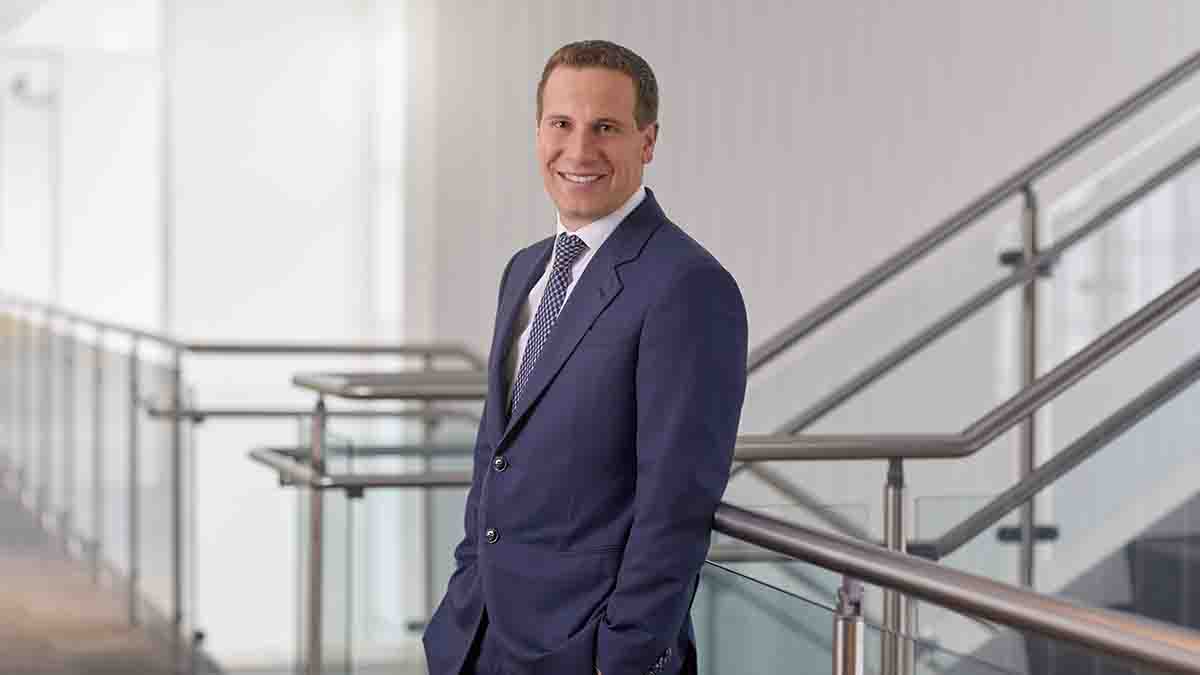New Silverado Ceo: We Must Be ‘bold’ To Meet Memory Care’s Next Challenges, Opportunities

Senior living provider Silverado is passing the torch to a new top leader, but longtime CEO and co-founder Loren Shook isn’t going anywhere just yet.
Last month, Irvine, California-based Silverado announced Shook is transitioning his leadership duties to Wayne Sanner, who is now the company’s “CEO designate.” In the coming 12 months, Shook will help steward Sanner, a former health care executive with experience at Prestige Healthcare, Rockport Healthcare and SavaSeniorCare, into the role.
Sanner has big shoes to fill. Over the years, Silverado has earned a reputation as a pioneering memory care operator pushing the sector forward with offerings like its early-stage dementia Nexus program. The memory care operator has recently added new services that bolster its offerings for a new generation of residents, and it is seeking to keep that momentum and grow to accommodate demand ahead. The company also is involved in a recapitalization effort targeted for 2027.
Innovating and iterating on Silverado’s current practices necessitates a deliberate and careful leadership transition, Sanner said.
“Let’s stay cutting-edge, let’s partner with the academic research community, let’s be bold,” Sanner told Senior Housing News. “We have to try and see what our residents can do versus being in a mindset of what they can’t do.”
Silverado has 28 communities in 10 states.
Preserving Silverado’s ‘standard of excellence’
Silverado’s way forward rests on preserving its “standard of excellence,” Shook and Sanner said. As senior living operators well know, maintaining quality through leadership transitions is not an easy feat.
In the coming months, Sanner is getting a crash course on “all things Silverado,” including its culture and standards, Shook said. Once he has a handle on the basics, Sanner is slated to take more of a role directing the company’s palliative care services. After that, Shook said he plans to hand over the reins of operational oversight and move to a more strategic role as executive chairman of the company’s board.
“I’m not going to be going off and making big decisions without Wayne on board,” Shook told SHN.
Silverado is growing by taking on troubled properties and turning around their operations. Last year, the company acquired two communities in Lee’s Summit, Missouri, and Torrance, California. The company also has its eyes on at least one more acquisition target in 2025.
“We’ve got several in the queue,” Shook said.
Silverado also recently launched a palliative care service line that ties into its existing hospice services. The company also is deepening its ties to medical groups and growing a burgeoning program under the new GUIDE model.
“Those are significant deviations from probably what others in the industry do but they’re good for us,” Shook said.
Silverado also is seeking to “acquire anything we manage,” Shook added.
Silverado also is planning a recapitalization effort in 2027, an effort that has continued for a while. That process prompted questions about the company’s way forward once Shook, 74, retires.
“When we make an acquisition or do loans, the lenders want to know what’s the succession plan, and as they should want to know that my own staff have been critical of me over the years and properly so that I didn’t have a successor,” Shook told MCB.
Silverado’s standard of excellence and research-based programming and operational practices are what attracted Sanner to the job.
“It was extremely important to me to find an organization that mirrored my values and that I felt comfortable with,” Sanner said.
As Shook steps back in the coming months, he is also still tying up some loose ends. That includes a legal ordeal in which he and two other company leaders faced criminal charges over the company’s early Covid-19 response. Although a judge dismissed all charges against Silverado and its leaders in 2023, the former Los Angeles District Attorney left the case in a state of limbo.
“We have a winning case,” Shook said. “We’re going to go forward with oral arguments.”
Memory care remains ‘very specialized’
In 2025, memory care operators are leveling up their services to accommodate new residents. As they do so, they are developing even more specialized and niche services to better care for many kinds of future customers.
Silverado’s memory care expertise hinges on the staff that provide those services. In the near-term, Sanner said Silverado would prioritize its staffing model to make sure staff can continue to provide the company’s “very specialized” care services.
“Demand…is already exploding and so ensuring that we have qualified staff, providing the education, support and training is critical,” Sanner said.
Sanner said he sees potential for using artificial intelligence (AI) to analyze data and make better strategic decisions for staff and residents. He added Silverado would remain “very open-minded” in considering future tech.
Shook feels strongly that senior living providers will soon have greater pharmacological tools at their disposal on pausing or in the future reversing the effects of dementia or cognitive change.
Recent breakthroughs include the availability of blood testing to identify potential indicators of dementia and the advancement of multiple pharmaceutical treatments.
The company’s proprietary Nexus memory care program has reported a 60% improvement in cognition across 730 older adults living with dementia. These results were also duplicated in a long-term care community study conducted abroad, Shook noted.
Silverado is the only senior living company in which its model is accredited by the Alzheimer’s Disease International (ADI) program, he added. The company also staffs medical directors at its communities, an uncommon practice in the industry.
“Acuity is playing a more and more pivotal role in strategic decision making in the memory care and assisted living space,” Sanner said. “We want to support any and all efforts to find a cure for memory impairment, but what we do have control over are things like the Nexus program and how we help enrich lives and benefit residents on a day-to-day basis.”
Shook said he believes better data collection and analysis of speech, gait and eye movements will soon help medical professionals diagnose dementia early, especially when paired with new tech.
“By pooling this information, taking in and using the power of AI, I think you can get to 99% accuracy, or some very high number,” Shook said.
Shook sees promise in improving cognitive function through aromatherapy, citing a study from South Korea of older adults living with mid-stage dementia and cognitive improvements following exposure to various scents known as “Memory Air.”
Looking out at the rest of the industry, Shook said he sees a shifting memory care landscape as operators prepare for demographic-driven demand and higher-acuity older adults. One thing that needs to change, Shook said, is the “infantilization” of older adults living with dementia, for example, older adults interacting with baby dolls through “doll therapy.”
“We need to recognize that people who have memory impairing diseases aren’t going through a second childhood,” Shook said. “They’re adults and should be interacted with as adults and not infantilized and dealt with as children.”
Sanner said in order to continue to improve memory care, operators must not be afraid to remain aggressive in finding the latest and greatest tools to improve their operations and care delivery.
The post New Silverado CEO: We Must Be ‘Bold’ to Meet Memory Care’s Next Challenges, Opportunities appeared first on Senior Housing News.


